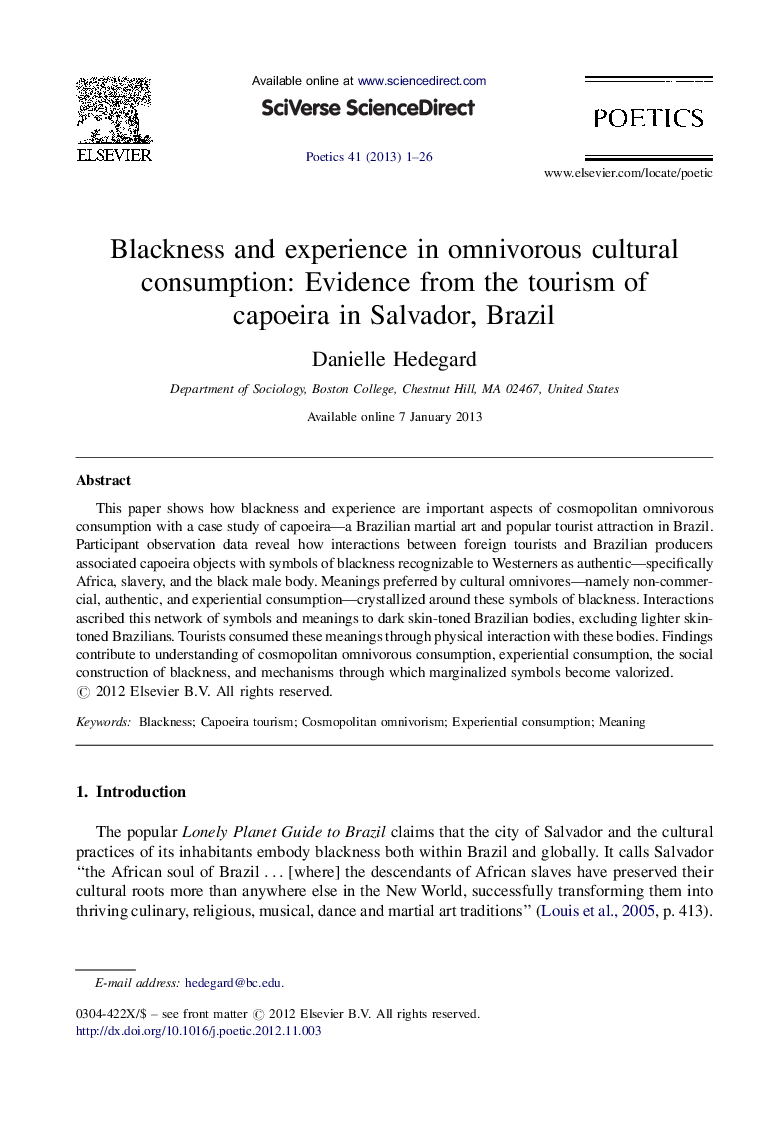| Article ID | Journal | Published Year | Pages | File Type |
|---|---|---|---|---|
| 1128417 | Poetics | 2013 | 26 Pages |
This paper shows how blackness and experience are important aspects of cosmopolitan omnivorous consumption with a case study of capoeira—a Brazilian martial art and popular tourist attraction in Brazil. Participant observation data reveal how interactions between foreign tourists and Brazilian producers associated capoeira objects with symbols of blackness recognizable to Westerners as authentic—specifically Africa, slavery, and the black male body. Meanings preferred by cultural omnivores—namely non-commercial, authentic, and experiential consumption—crystallized around these symbols of blackness. Interactions ascribed this network of symbols and meanings to dark skin-toned Brazilian bodies, excluding lighter skin-toned Brazilians. Tourists consumed these meanings through physical interaction with these bodies. Findings contribute to understanding of cosmopolitan omnivorous consumption, experiential consumption, the social construction of blackness, and mechanisms through which marginalized symbols become valorized.
► Examines how blackness is valorized in cosmopolitan omnivore consumption. ► For tourists, Brazilian studio touted Africa, slavery and Afro-Brazilian culture. ► Resonated with taste for authentic, non-commercial and experiential consumption. ► Interactions ascribed this synthesis of meanings to dark skin-toned male bodies. ► Tourists gained cosmopolitan experience by interacting with these dark bodies.
